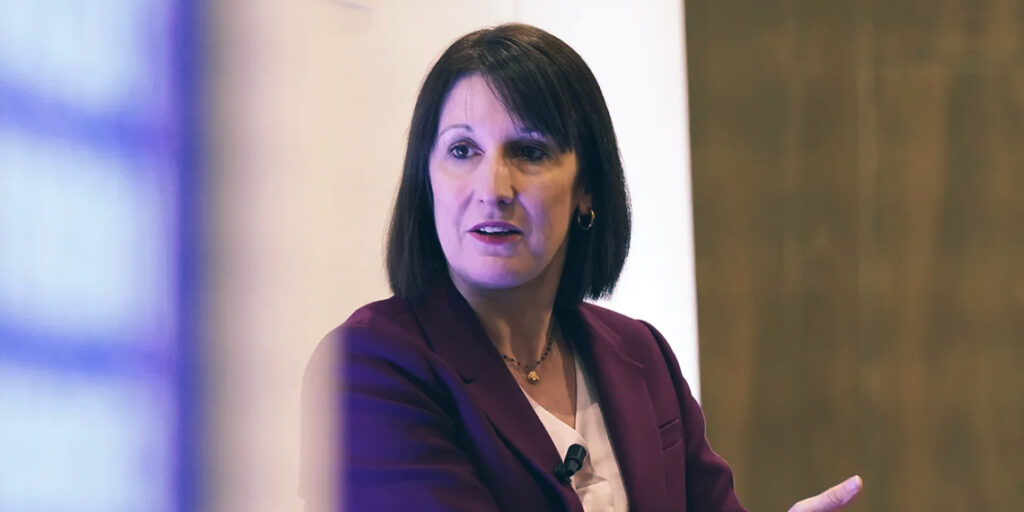Chancellor Rachel Reeves has outlined her vision to end the UK’s turbulent post-Brexit relationship with the European Union (EU), describing it as plagued by “division and chaos.”
In the first address by a UK chancellor to eurozone finance ministers since Brexit, Reeves will advocate for a pragmatic “economic reset” aimed at boosting trade and growth.
Speaking to the Eurogroup meeting in Brussels, Reeves is expected to state:
“This is the first time a British chancellor has addressed the Eurogroup since Brexit. It is a signal of the new UK government’s commitment to resetting our country’s relationship with the European Union and the importance I place in realising the economic potential of our shared future.
“I know that the last few years have been fractious. Division and chaos defined the last government’s approach to Europe. It will not define ours.”
Reeves’ plan centres on fostering a “business-like” relationship built on trust, mutual respect, and shared goals. Her economic reset seeks to strengthen UK-EU ties by reducing barriers to trade, increasing investment, and creating better jobs for working people.
She will highlight three key shared challenges that closer cooperation could address: the ongoing war in Ukraine, championing free trade to drive competitiveness, and rejuvenating bilateral economic partnerships.
“We want a relationship built on trust, mutual respect, and pragmatism,” Reeves will say. “A mature, business-like relationship where we can put behind us the low ambitions of the past and move forward, focused instead on all that we have in common and all that we might achieve together.”
However, obstacles remain to forging deeper UK-EU ties. Brussels officials have signalled resistance to revising cross-border trade arrangements unless the UK considers rejoining the single market or customs union—moves the UK government has ruled out, along with the free movement of labour.
Further tension arises from European capitals, including Madrid, which continue to push for expanded access to UK fishing waters in exchange for any easing of border checks. No 11 Downing Street is reportedly concerned that such demands could undermine Reeves’ efforts.
Ireland, which chairs the Eurogroup, is a vocal proponent of closer UK-EU relations, seeing economic collaboration as a path to mutual growth. Meanwhile, political instability in France and Germany may provide the UK with additional leverage, as both nations grapple with slumps in business confidence.
She will argue that strengthening ties with the EU is a win-win for both parties. “I believe that a closer economic relationship between the UK and the EU is not a zero-sum game. It’s about improving both our growth prospects,” she will say.
Critics, however, have urged a different approach. Shadow Secretary of State for Business and Trade Andrew Griffith suggested Reeves should prioritise a US-UK trade deal, urging her to “jump on a plane to the US and talk to Trump” to secure economic gains.
Griffith also called for a reversal of recent tax increases on businesses, which he claimed have “devastated” confidence in the UK economy.
European officials have welcomed Labour’s shift in tone but remain cautious. Sandro Gozi, the European Parliament’s lead MEP on UK relations, noted in October that while Labour’s rhetoric marks a change, the party has yet to detail concrete demands for its reset strategy.
As Reeves addresses European finance leaders, her focus will remain clear: breaking down barriers to trade and fostering economic cooperation to unlock growth opportunities.
“That is why I am here today. That’s what our reset seeks to achieve,” she will declare, signalling Labour’s intent to redefine the UK’s role in the European economic landscape.


